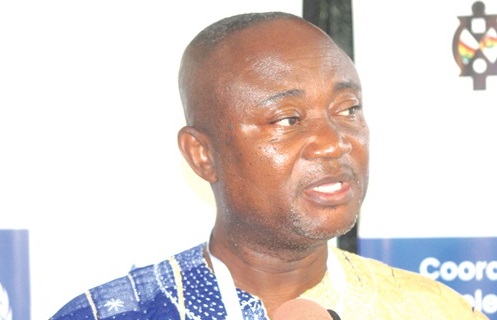The Minister of Trade, Agribusiness and Industry, Elizabeth Ofosu-Adjare, has reaffirmed Ghana’s commitment to the African Continental Free Trade Area (AfCFTA) Protocol on Women and Youth in Trade.
She emphasised that the protocol was essential to ensuring that women and youth, who led 44-51 per cent of micro, small and medium-scale enterprises (MSMEs) and formed the productive backbone of the country’s economy, benefited fully from continental integration.
This was contained in a speech read on her behalf by the Director of Administration at the ministry, Yaw Sekyi, at the National AfCFTA Dialogue in Accra yesterday.
The minister said in spite of their resilience and economic significance, women and youth continued to face major obstacles, such as limited access to affordable finance, high trade-related costs, customs delays, difficulties meeting product standards, the lack of export information and barriers to digital adoption.
These challenges, she stressed, must be addressed intentionally for Ghana to harness the full benefit of AfCFTA.
"Ghana welcomes this protocol wholeheartedly and remains committed to advancing a structured and inclusive roadmap for its implementation.
As we gather here today, it is important to recognise that women and youth are not peripheral actors in our economy.
They are central to our national productivity," she said.
The ministry, therefore, pledged its support through regulatory improvements, capacity-building and business development programmes via the Ghana Enterprises Agency, export-readiness and market facilitation through the Export Ghana initiative and agribusiness value-chain interventions.
Mrs Ofosu-Adjare mentioned that inclusive participation in AfCFTA could not be achieved by the government alone, emphasising that it required collaboration across the public and private sectors, financial institutions, civil society and development partners.
"The minister eagerly awaits the recommendations that will emerge from this engagement to support the upcoming revision of Ghana's AfCFTA Policy Framework and Action Plan," Mr Sekyi read.
"Together, we can build a trading system that is not only inclusive and fair but full of opportunities; a system where women and youth are not just participants, but the architects of Ghana's economic future," he added.
Dialogue
The event, jointly organised by the Ministry of Trade, Agribusiness and Industry, the National AfCFTA Coordination Office and the United Nations Development Programme (UNDP), focused on harnessing the AfCFTA Protocol on Women and Youth in Trade to promote inclusive growth, access to finance, and trade readiness for women-led and youth-led MSMEs.
![]()
The dialogue, which opened with an exhibition of products and services from women-led and youth-led enterprises, featured speeches, presentations, a panel discussion and a plenary session.
It was held on the theme: “Empowering Ghanaian Women- and Youth-Led MSMEs”.
In attendance were UNDP Ghana Resident Representative, Niloy Banerjee; Principal Officer, Women and Youth in Trade, AfCFTA Secretariat, Gemma Mbegabolawe, and the Head of Micro and Small Enterprises of GCB Bank, Cedric McAddy.
Action through financing
The acting National AfCFTA Coordinator, Benjamin Asiam, called for decisive national action to implement the AfCFTA Protocol on Women and Youth in Trade, emphasising its strategic importance for Ghana’s economic future.
He stated that women led 44-51 per cent of all registered MSMEs, and youth entrepreneurs were powering growth across agriculture, ICT, manufacturing, and the creative economy, making their inclusion “indispensable” to Africa’s single market project.
He mentioned that simplified trade procedures, capacity-building support, rules of origin, and digital inclusion measures could help these sectors to scale into continental markets.
He, however, cautioned that major constraints such as limited access to finance, challenges in certification and standards, harassment at borders, logistical bottlenecks, and inadequate sex and age-disaggregated trade data persisted.
Without precise data, he warned, policies risked being “well-intentioned but insufficiently targeted.”

